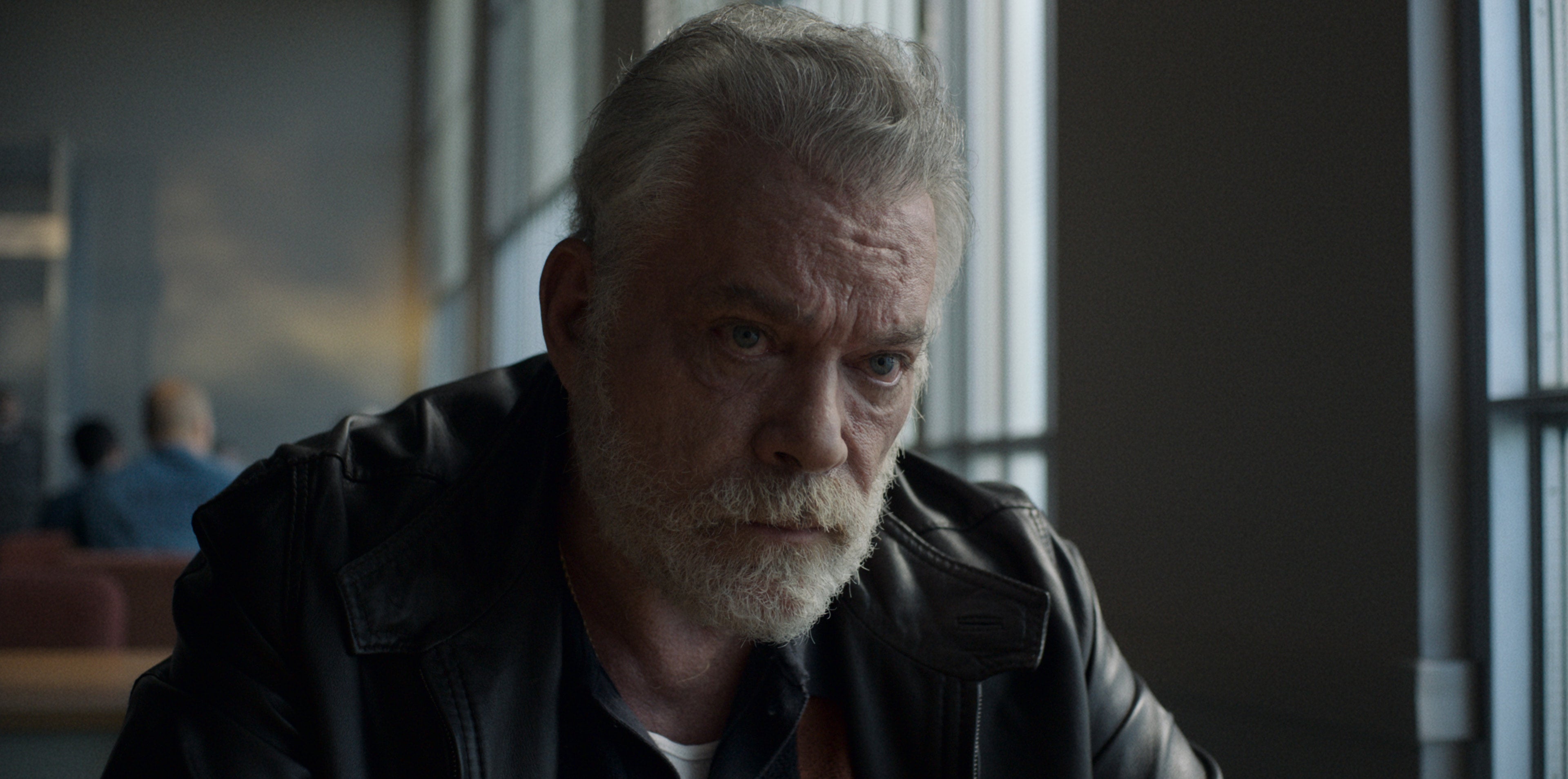
“What do you like about women?” It’s a straightforward enough question that FBI agent Lauren McCauley puts to inmate Jimmy Keene early in the new Apple TV miniseries Black Bird. Still, each answer Jimmy manages is wrong. “Everything”, he says – too vague. “I’ve got sisters”, he adds, disappointingly – so you’re saying you wouldn’t like women if you didn’t understand them in relation to yourself? “I can chill with a woman in a way I never could with a dude”, Jimmy clarifies – please see previous objections.
But it’s Lauren’s thorny next question that becomes the prison thriller’s dark and unlikely preoccupation: “What don’t you like about women?”
Jimmy says “nothing” – excellent answer, no notes. But Black Bird isn’t really about Taron Egerton’s Jimmy Keene, a smooth-talking drug dealer serving 10 years for trafficking cocaine and possessing firearms. It’s about Larry Hall, the serial killer whose confession the FBI tasks Keene with extracting in exchange for an early release. The too-wild-to-be-fiction premise comes straight from the real James Keene’s 2010 autobiography, In With the Devil: A Fallen Hero, a Serial Killer, and a Dangerous Bargain for Redemption.
There are two schools of thought when it comes to Larry, played by Paul Walter Hauser with bushy mutton-chops and a lilting singsong voice that would be unsettling even if he was talking to a newborn. The first is that he’s a “harmless” weirdo – too slow and aloof to have raped and murdered the girls who’ve gone missing in the small midwestern towns he’s visited as a Civil War re-enactor. The other is that he’s a violent misogynist who kills girls because women scorn him.
Freud said that rule-breakers are criminals or they’re heroes. A muscular and conspicuously tanned Egerton plays Jimmy with a nasal twang and a superiority complex that fits like an expensive suit. It’s an astonishingly consistent performance. For every piece of dialogue he’s handed, Egerton finds the smuggest line reading possible. He nods smug. He wears a prison jumpsuit like he’s doing it a favour. But when he agrees to transfer to a maximum-security facility to help the FBI reinforce their case against Larry, his world is flipped upside down. In here, Jimmy’s uncharacteristically needy and afraid.
And he’s right to be. Over six blistering one-hour episodes, the process of earning Larry’s trust requires our aspiring hero to drop the smarm and spill his secrets to a man who makes his skin crawl. Jimmy tells Larry about his long history of womanising; he confides in him about how his stepdad would beat his mom. Hauser is relentlessly spine-chilling as Larry. As a kid, his gravedigger father would wake him at night to steal jewellery off dead bodies. Now, he pesters Jimmy into revealing the pitch-black thoughts he’d never admit to himself, including the cruellest, most barbaric fantasies he’s had about his own mother.
Larry’s victim Jessica Roach – an Indiana teenager who we see riding her bike in the direction of danger in Black Bird’s opening images – is markedly absent from the narrative, at least until an excruciating fifth episode that trades Jimmy’s heavy-handed narration for her sweet, heart-breaking reflections on her own tragic life. Affecting as it was, I hope to never see another episode of television like it.
Black Bird is brimming with stellar performances, starting with newcomer Laney Stiebing’s haunting turn as Jessica. Greg Kinnear is terrific as the small-town detective who trusts his gut and out-thinks the Feds, and Sepideh Moafi (The L Word: Generation Q) is magnetic as ballsy Lauren, the FBI agent who can see through Jimmy’s charms. But it’s Ray Liotta, who died in June, that stands out as Jimmy’s dad, an ex-cop who blames himself for his son breaking bad. Liotta’s gritty Jim Keene Sr crumbles, emotionally and eventually physically, under the weight of the question: Did I do enough for my son? At times, it seems the world of Black Bird, which is mostly set inside the walls of a male prison, is entirely populated by neglected boys who grew up to be men trying not to remember what that felt like.

Keene’s book has been deftly adapted for television by first-time showrunner Dennis Lehane, the novelist behind Gone, Baby, Gone and Mystic River. Lehane has established himself as the bard of missing children, and the methodical pacing of Larry and Jimmy’s cat-and-mouse has the familiarity of a smoky whodunnit. But it’s not a whodunnit. Larry dun it. The moments in which we’re encouraged to doubt that fact are fleeting. They say more about the limits of the US criminal justice system’s ability to actually apprehend violent criminals than they do about Larry’s elusive character and troubling motives. “What do you think Larry Hall doesn’t like about women?” Lauren asks Jimmy before he’s even met the guy. Black Bird is less about catching a killer than it is about understanding one.
And at its most shocking, it’s about something far simpler and more serious: what men – the criminals and the heroes and the ones in between – would say if they were the ones answering Lauren’s trenchant questions.







